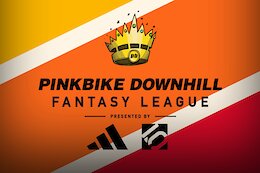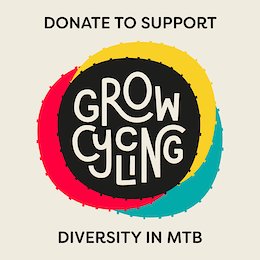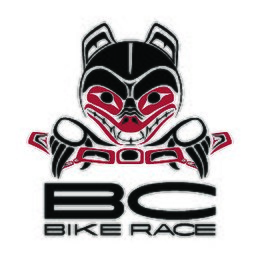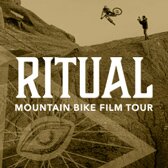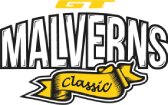Ed Spratt
Today
 Semi-Final Results from the Fort William DH World Cup 2024
Semi-Final Results from the Fort William DH World Cup 2024
The results are in from the first semi-finals of the 2024 season.
Jessie-May Morgan
Today
 15 Privateer Bikes at Fort William World Cup 2024
15 Privateer Bikes at Fort William World Cup 2024
The workhorses of DH World Cup privateers
Ed Spratt
Today
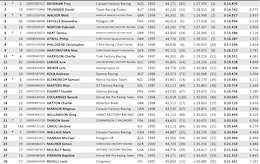 Junior Qualifying Results from the Fort William DH World Cup 2024
Junior Qualifying Results from the Fort William DH World Cup 2024
The results are in from the Junior qualifying at Fort William.
Ed Spratt
Today
 Elite Qualifying Results from the Fort William DH World Cup 2024
Elite Qualifying Results from the Fort William DH World Cup 2024
The elite qualifying results are in with the decision made on who progresses to the semi-finals.
Jessie-May Morgan
Today
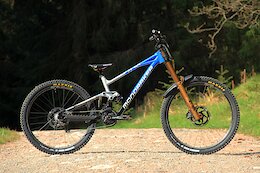 Bike Check: Dakotah Norton's Prototype Mondraker Summum at Fort William World Cup
Bike Check: Dakotah Norton's Prototype Mondraker Summum at Fort William World Cup
Holy-high-rise handlebars, completed with pannier rack mounts.
Ed Spratt
Today
 Practice Photo Epic: Fort William DH World Cup 2024
Practice Photo Epic: Fort William DH World Cup 2024
Downhill World Cup racing is back as Fort William returns as the series' opening round for the first time since 2013.
Ed Spratt
Today
 Video: Practice Day Action from the Fort William DH World Cup 2024
Video: Practice Day Action from the Fort William DH World Cup 2024
Incredible conditions for the first day of riding at Fort William.
SDG Components
Today
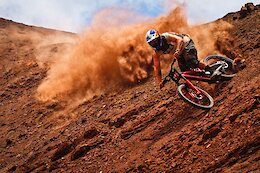 MUST WATCH: Brage Vestavik & Nico Vink in 'Sandscape Eternal'
MUST WATCH: Brage Vestavik & Nico Vink in 'Sandscape Eternal'
18 minutes of raw, brutal freeride from Brage and Nico Vink in one of the driest places on earth. So punishing, so good.
Sarah Moore
Today
 Paul Bas Walks Half Marathon 8 Years After Being Paralyzed at Red Bull Rampage
Paul Bas Walks Half Marathon 8 Years After Being Paralyzed at Red Bull Rampage
Incredible to see Paul Basagoitia being able to walk 21km (13.1 miles).
Jessie-May Morgan
May 3, 2024
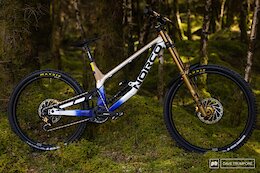 Bike Check: Greg Minnaar's Norco Prototype DH Bike at Fort William World Cup
Bike Check: Greg Minnaar's Norco Prototype DH Bike at Fort William World Cup
After 16 years with the Santa Cruz Syndicate, the GOAT is on a Norco for 2024
Mike Kazimer
Today
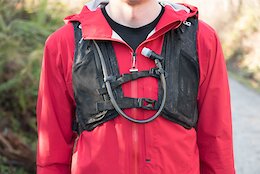 Pinkbike Poll: Hip Pack, Vest, or Backpack?
Pinkbike Poll: Hip Pack, Vest, or Backpack?
Or maybe you fill your cargo pant pockets with snacks and tools?
Pinkbike Originals
May 3, 2024
 Video: Fort William DH World Cup Course Preview 2024 (With A Twist)
Video: Fort William DH World Cup Course Preview 2024 (With A Twist)
Ben Cathro commentates as first-year Junior Heather Wilson from the Muc-Off Young Guns team hits the Fort William World Cup DH track.
Ed Spratt
May 2, 2024
![[UPDATED] Video Round Up: Fort William DH World Cu](https://ep1.pinkbike.org/p2pb26593782/p2pb26593782.jpg) [UPDATED] Video Round Up: Fort William DH World Cup 2024
[UPDATED] Video Round Up: Fort William DH World Cup 2024
All the action so far from this week's racing at Fort William.
Outside Online
May 3, 2024
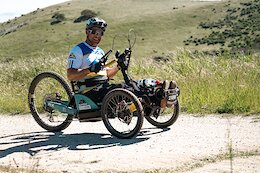
More than two decades after a crash left him paralyzed, Tarek Rasouli rekindled his love of off-road riding with the help of an innovative handcycle.
Sarah Moore
Today
 Video Round Up: Course Previews from Ronan Dunne, Laurie Greenland, & More - Fort William World Cup DH 2024
Video Round Up: Course Previews from Ronan Dunne, Laurie Greenland, & More - Fort William World Cup DH 2024
All the videos from the Bill.
Ed Spratt
May 3, 2024
 Timed Training Results: Fort William DH World Cup 2024
Timed Training Results: Fort William DH World Cup 2024
The most important results of the weekend are in from Fort William.
Pinkbike Originals
May 3, 2024
 Video: Friday Fails #320
Video: Friday Fails #320
Back in action for some Friday Fails featuring some classic OTB's!
Ed Spratt
May 3, 2024
 Bike Check: Oisin O'Callaghan's New YT Tues Race Bike - Fort William World Cup DH 2024
Bike Check: Oisin O'Callaghan's New YT Tues Race Bike - Fort William World Cup DH 2024
A brand new frame and free reign on parts spec make for a truly unique ride.
Henry Quinney
May 3, 2024
 Spotted: Speculating on the New Lapierre Downhill Bike - Fort William World Cup DH 2024
Spotted: Speculating on the New Lapierre Downhill Bike - Fort William World Cup DH 2024
Antoine Rogge takes to Aonach Mòr on a high-pivot prototype from Lapierre
Jessie-May Morgan
May 3, 2024
 Even More Tech Randoms: Fort William World Cup DH 2024
Even More Tech Randoms: Fort William World Cup DH 2024
The Fort William World Cup keeps on serving up new tech.
Jessie-May Morgan
May 3, 2024
 First Look: Vittoria's New Mostro Enduro Race Tire
First Look: Vittoria's New Mostro Enduro Race Tire
Vittoria roll out a new gravity tire that sits between the Mota and the Mazza.
Wyn Masters
May 3, 2024
 Video: WynTV Track Walk - Fort William DH World Cup 2024
Video: WynTV Track Walk - Fort William DH World Cup 2024
Wyn hits the track walk at Fort William to see how everyone is feeling coming into the big round one showdown this weekend.
ForbiddenBike
May 3, 2024
 Video: Marcel Hunt & Friends At the Bike Ranch In Kamloops for 'Kids Line'
Video: Marcel Hunt & Friends At the Bike Ranch In Kamloops for 'Kids Line'
A good ol’ time in the air.
COMMENCAL BIKES & SKIS
May 2, 2024
 Video: Billy Meaclem Styles it Out on Perfectly Sculpted Handbuilt Jumps in 'Payday'
Video: Billy Meaclem Styles it Out on Perfectly Sculpted Handbuilt Jumps in 'Payday'
Watch Billy Meaclem style it out on handmade secret trails in the middle of a forest in NZ!
Pinkbike Staff
Apr 30, 2024
 LAST CHANCE: Build Your Team Ahead of Round 1 - Fort William World Cup DH 2024
LAST CHANCE: Build Your Team Ahead of Round 1 - Fort William World Cup DH 2024
We're heading into the first round of Pinkbike's DH Fantasy League, presented by the good people at Five Ten.
Rémy Métailler
May 2, 2024
 Video: Dirt Surfing in California with Remy Metailler & Drew Palmer Leger
Video: Dirt Surfing in California with Remy Metailler & Drew Palmer Leger
Dirt doesn't get much better than this.
Pinkbike Staff
May 2, 2024
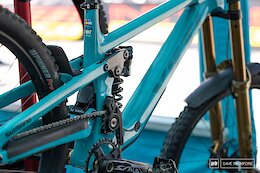 More Tech Randoms - Fort William World Cup 2024
More Tech Randoms - Fort William World Cup 2024
Protoype DH bikes, a new steering damper, Flight Attendant DH.
Henry Quinney
May 2, 2024
 Video: The Latest Tech from the Fort William World Cup | The New Foxxer?
Video: The Latest Tech from the Fort William World Cup | The New Foxxer?
Henry brings you the latest tech from the first downhill world cup of the year.
Ed Spratt
May 2, 2024
 Video: Rider Press Conference from the Fort William DH World Cup 2024
Video: Rider Press Conference from the Fort William DH World Cup 2024
Loïc Bruni, Louise Ferguson, Myriam Nicole, Reece Wilson and Greg Minnaar share their thoughts ahead of round 1 of the 2024 series.
Matt Beer
May 2, 2024
 Spotted: Canyon's High-Pivot Carbon Sender - Fort William DH World Cup 2024
Spotted: Canyon's High-Pivot Carbon Sender - Fort William DH World Cup 2024
The cover is off, and it looks like a...
Archive Navigator
2024 Advertiser List
Brands
Bikes
- Trek
- Specialized
- Devinci
- Rocky Mountain
- Giant Bikes
- Scott
- Kona
- Norco
- Commencal
- NS Bikes
- Santa Cruz
- Yeti
- YT Industries
- Polygon Bikes
- Cube
- Radon Bikes
- Marin
- Guerrilla Gravity
- RSD Bikes
- Propain Bikes
- DMR Bikes
- Canyon
- PRIME Bicycles
- Pivot Cycles
- Hybridizer Bikes
Components
- SRAM
- Shimano
- Race Face
- Industry Nine
- SDG
- Deity
- Hunt Wheels
- One Up Components
- KS
- Rotor Bike Components
- Stan’s NoTubes
- Reverse Components
- RideWrap
- PROLOGO
- Yoshimura Cycling
- TRP Cycling
- Galfer USA
- Bikeyoke
- e*thirteen
- Geo Handguards
Suspension
Tires
Accessories
Coaching and Education
Online Retailers
Resorts/Riding
- Trestle Bike Park
- Bike Parks BC
- Fernie
- Crested Butte
- Big White
- Saalbach Hinterglemm
- Whitefish Mountain Resort
- Visit Tucson
- Monument Trails
- Mountain Bike Park City
